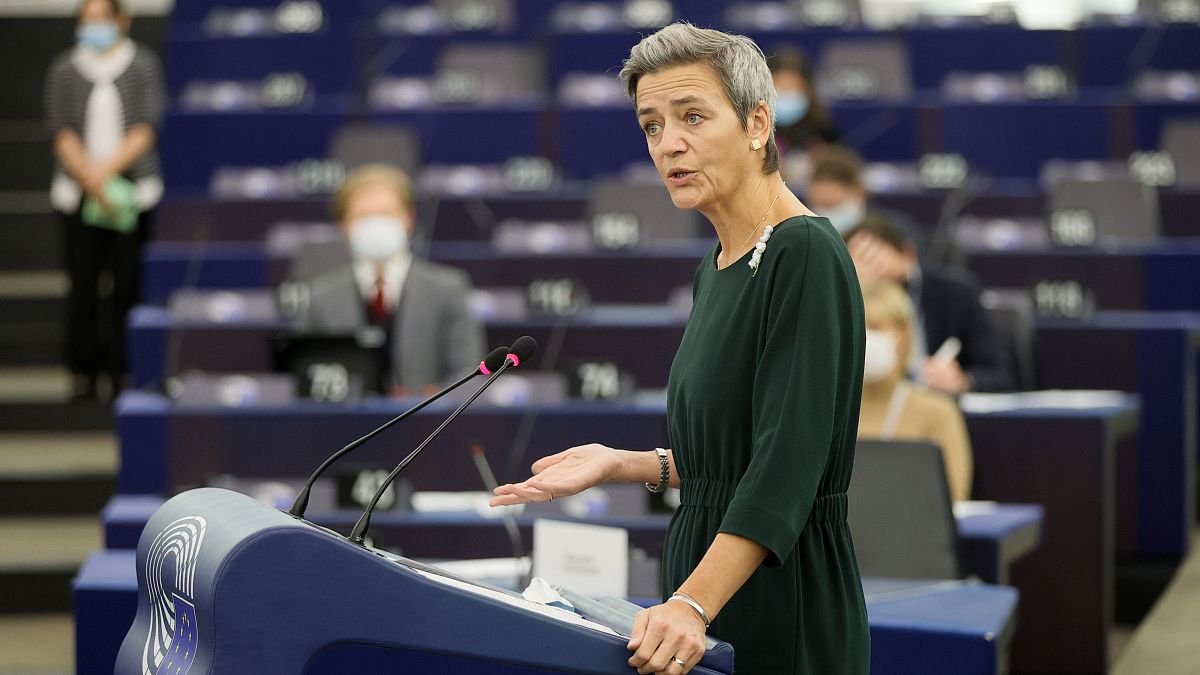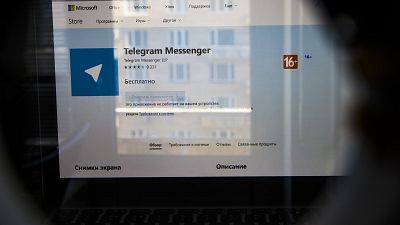A year after the landmark EU rules affecting digital platforms began to apply, the system of enforcement is fully under way.
The digital platforms most quizzed by the European Commission to check whether their policies are in line with the landmark Digital Services Act (DSA) are Meta and TikTok, data collected by Euronews shows. Almost one year on from the introduction of the new law, a probe into X advanced by the Commission last week (12 July) is the most advanced of the pending investigations under the EU’s platform rules.
The preliminary findings found X in breach of the DSA - and the Commission could potentially come to similar conclusions in the other probes into Meta, Aliexpress and TikTok later this year.
Besides investigations, Brussels keeps adding more platforms to the list of Very Large Online Platforms (VLOPs) once they hit the threshold of 45 million monthly users in the EU. It most recently designated porn platform XNXX: making it VLOP 25 to add to the list.
We take a look at where we stand with DSA enforcement: next month it will be one year since the first batch of VLOPs had to comply, and half a year since the rules became applicable to all online platforms.
Which sectors are most represented?
The Commission envisioned the DSA to empower and protect users online by requiring platforms to assess and mitigate their systemic risks and to provide robust content moderation tools, it said in a statement when the DSA took effect. Among other things, businesses are obliged under the rules to produce transparency reports and to set up ad repositories.
Telegram, a messaging service founded in 2013 by Russian-born Pavel Durov, is likely to be next. A designation of the platform – which now says it has around 41 million monthly users in the EU – is expected in August. The app is currently under the oversight of the Belgian national digital services coordinator because it chose Belgium as the country for its EU headquarters.
Pending investigations
The EU commission has four formal investigations pending under the DSA: into X, Meta, Aliexpress and TikTok. X’s probe has hit the first stage with the announcement last week of the EU executive's preliminary findings of its grievances. The investigation into content moderation and disinformation is still ongoing, the Commission said last week (12 July).
X’s suspected breaches are different by comparison with the other platforms. In the case of Meta – whose platforms Instagram and Facebook were both hit with probes – it’s about deceptive advertisements, visibility of political content and failure to conduct real time checking by third parties ahead of the EU election last June. As well as a second probe into the platforms’ protection of minors.
A spokesperson for Meta could not say when the investigation is expected to move forward.
Online marketplace Aliexpress is under investigation for the measures it takes against illegal content, and TikTok faces charges for addictive design and its TikTok Lite app which would incentivise children to use the tool in exchange for rewards.
Besides the formal investigations, the Commission sent many requests for information to various companies. Facebook and Instagram each received the most questions (seven). Wikipedia and newly designated XNXX have not yet received any, data provided by the Commission shows.
On the basis of the requests for information, the Commission can decide to open formal proceedings. In case of non-compliance, platforms could face fines of up to 6% of the company’s global turnover.
Guidelines
Under the DSA, the Commission – together with the national digital services coordinators in the member states – is also setting up guidelines. The election guidelines ahead of the EU vote in June were the first. Euronews reported in June that the next set of tools on how to interpret the DSA will be on the protection of minors. These are expected in the second quarter of next year.
There are still some discrepancies when it comes to oversight: despite the obligation for the 27 member states to appoint national coordinators to oversee the rules' implementation, some have failed to do so. Euronews reported earlier this month (5 July) that Poland and Slovakia have not formally set up the regulators yet, even though the Commission in April started an infringement procedure on the issue.
The national regulators are online platforms' main point of contact in helping the Commission with collecting evidence on the implementation of the DSA. They meet under the EU oversight board in a bid to streamline national approaches and give users across the EU the same rights.














